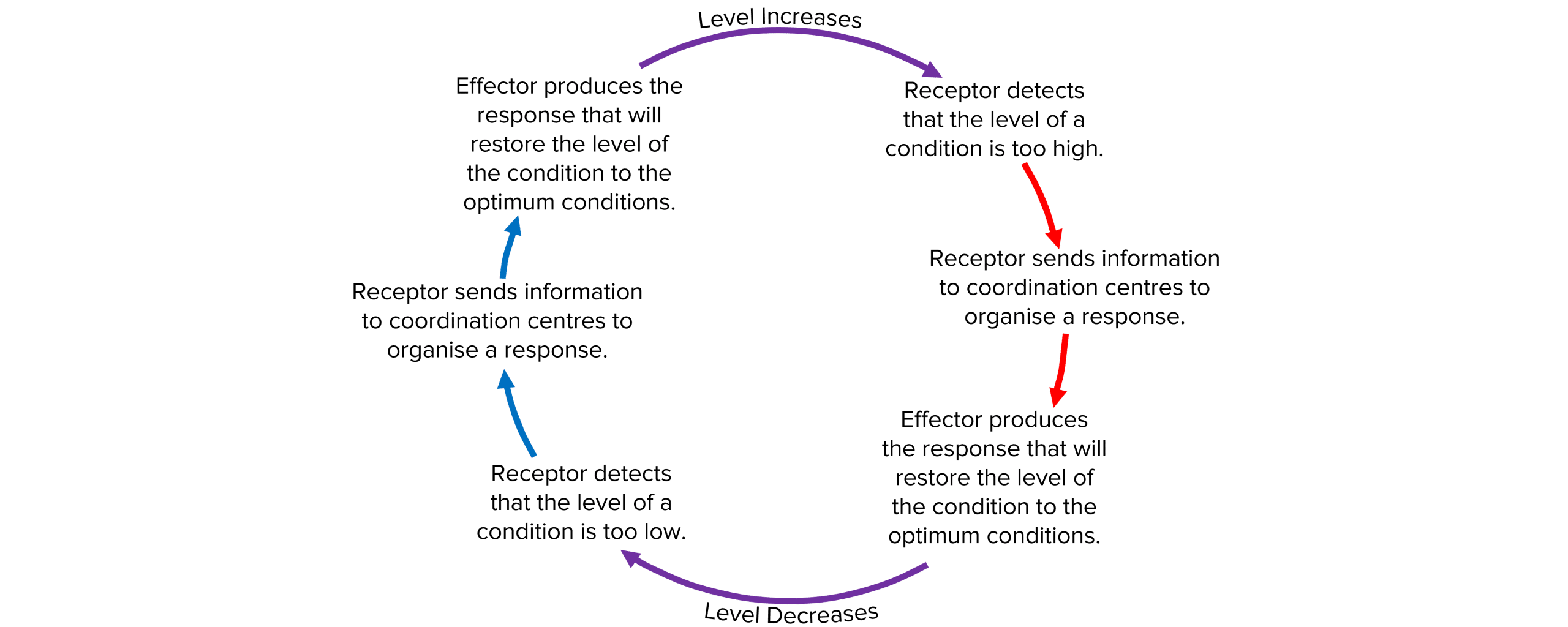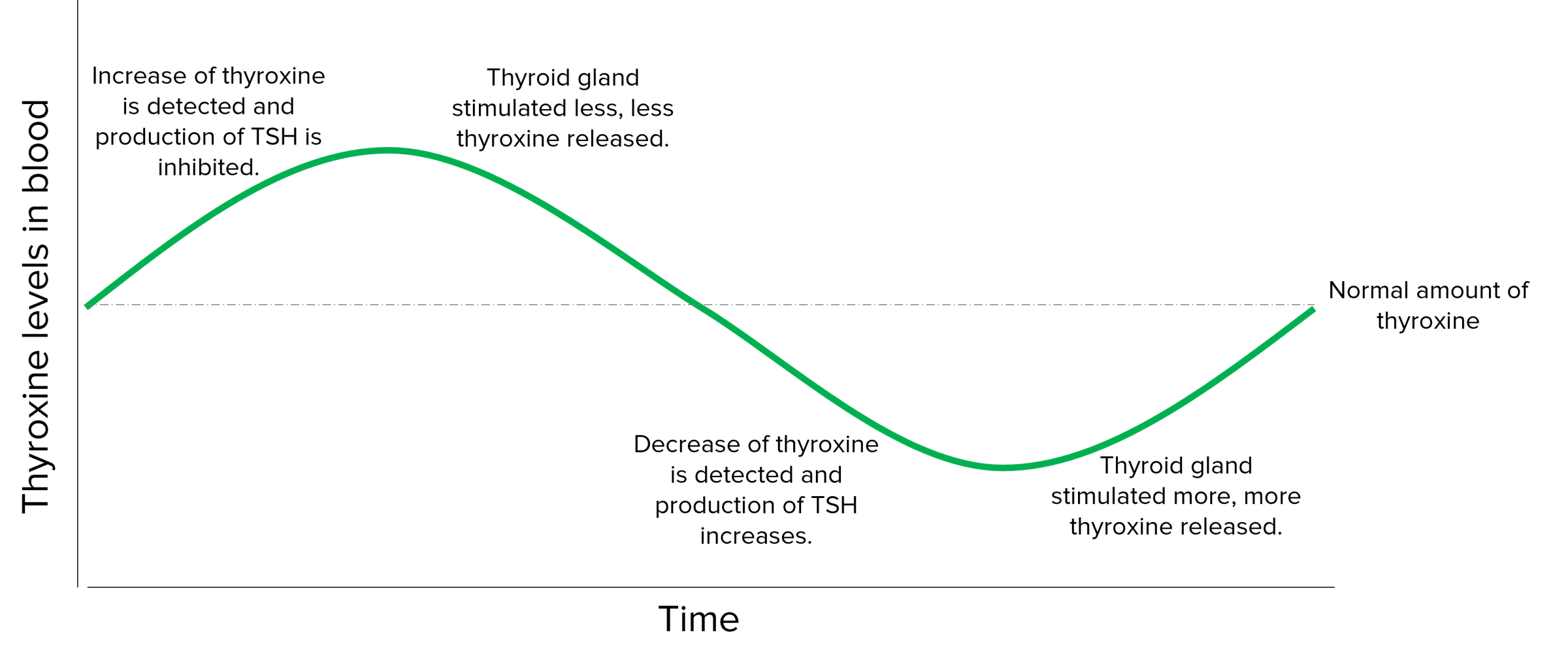Feedback Systems
Feedback Systems Revision
Feedback Systems
Negative feedback cycles are vital for maintaining homeostasis in the body (maintaining body temperature, blood glucose, water levels etc). Thyroxine is a hormone that uses negative feedback to regulate metabolism. Adrenaline is a hormone that triggers a ‘fight or flight‘ response and is not controlled by negative feedback.
Negative Feedback
The human body must maintain certain internal conditions in order to function correctly; this is called homeostasis.
Many bodily conditions are controlled by negative feedback cycles. They work by detecting and counteracting changes in bodily conditions, returning levels back to their optimum. This happens automatically in the body.

Effectors continue producing responses as long as they are stimulated by coordination centres which means it is common for the level to be increased/decreased too much. In these cases, negative feedback begins again in the opposite direction.
Effectors can produce nervous responses or hormonal responses.
Thyroxine
Thyroxine is a hormone that controls metabolism. It has many uses within the body such as regulating the speed of chemical reactions when at rest (basal metabolic rate) and controlling growth and development by stimulating protein synthesis.
Thyroxine levels are monitored and optimum levels are maintained using a negative feedback cycle, to keep the body functioning correctly.
Thyroid stimulating hormone (TSH) is released from the pituitary gland and stimulates the thyroid gland to release thyroxine.
- When thyroxine levels are too high, the secretion of TSH is inhibited, subsequently reducing the amount of thyroxine released from the thyroid gland. This allows thyroxine levels to fall back to the normal amount.
- When thyroxine levels become too low, the secretion of TSH is increased, increasing the amount of thyroxine released from the thyroid gland.

Adrenaline
In scary and stressful situations, the hormone adrenaline is released which prepares the body for ‘fight or flight‘.
Fear and stress are detected by the brain which sends nervous impulses to the adrenal glands which start secreting adrenaline.
Adrenaline triggers systems that will increase the delivery of oxygen and glucose to the brain and muscles, e.g. increasing heart rate, increasing breathing rate, increasing break down of glycogen. This prepares the body so it is able to respond quickly in dangerous situations.
Feedback Systems Example Questions
Question 1: Which glands release thyroxine and adrenaline?
[2 marks]
Thyroxine – thyroid gland.
Adrenaline – adrenal gland.
Question 2: Explain how the body responds to low thyroxine levels in the blood.
[2 marks]
- Change detected and production of TSH increases.
- TSH stimulates thyroid gland to release more thyroxine.
Question 3: How does adrenaline prepare the body for fight or flight?
[2 marks]
Adrenaline triggers mechanisms that increase delivery of oxygen and glucose to brain and muscles/ increases heart rate/ increases breathing rate/ increases break down of glycogen.
This enables the body to respond quickly to the situation.






